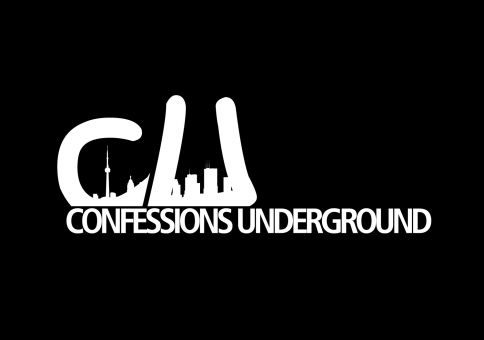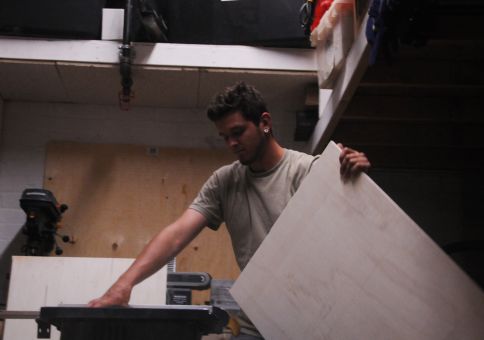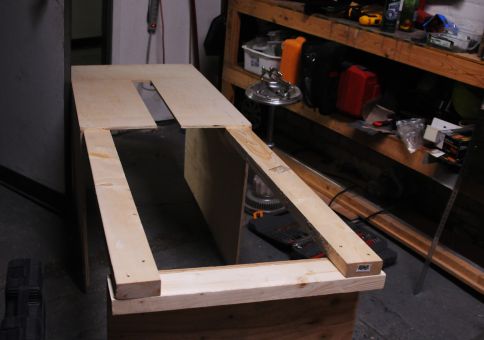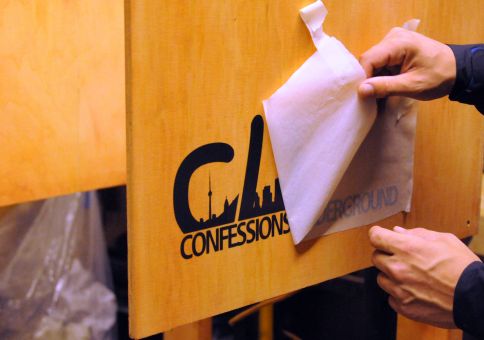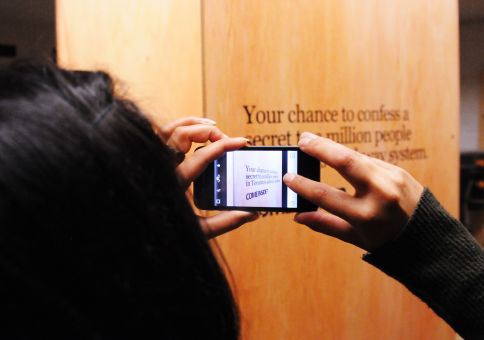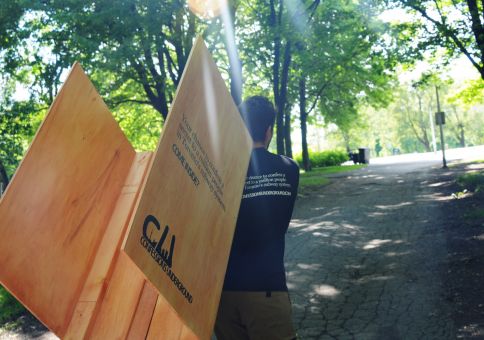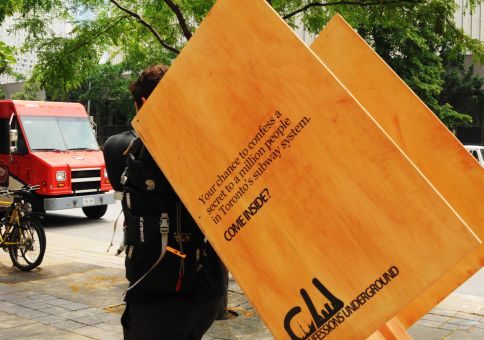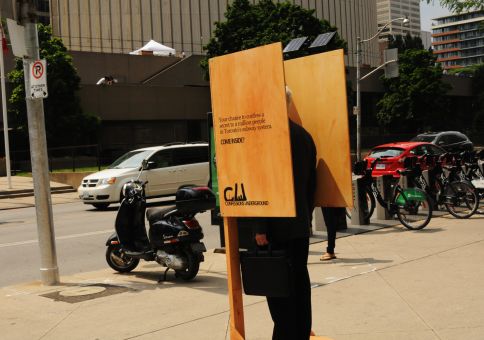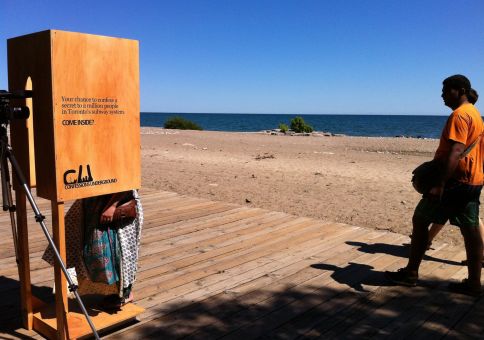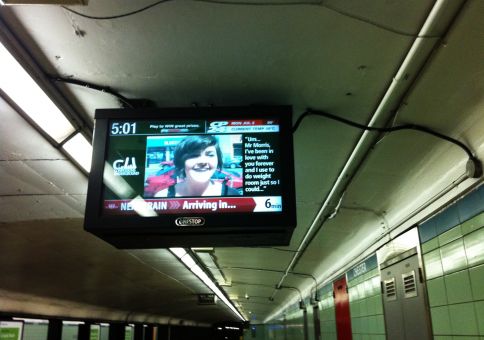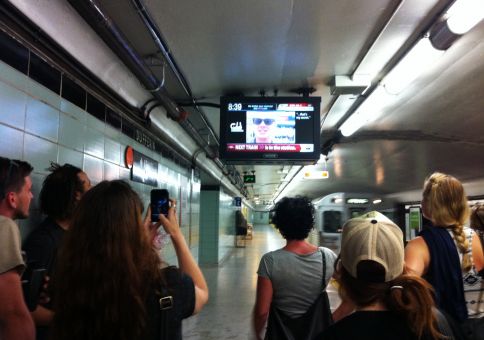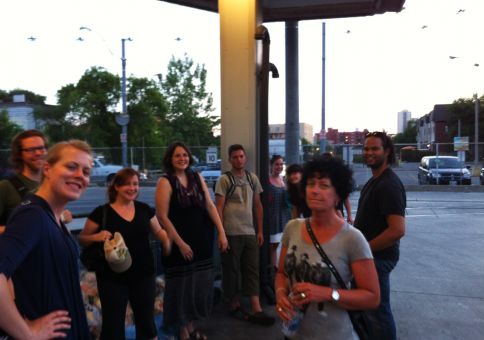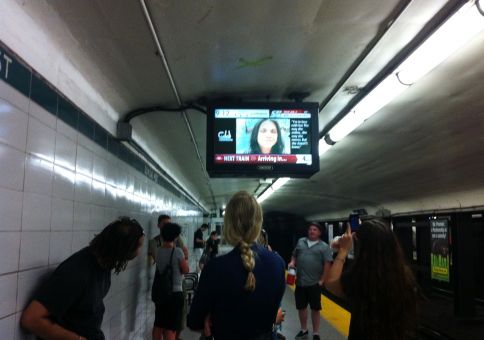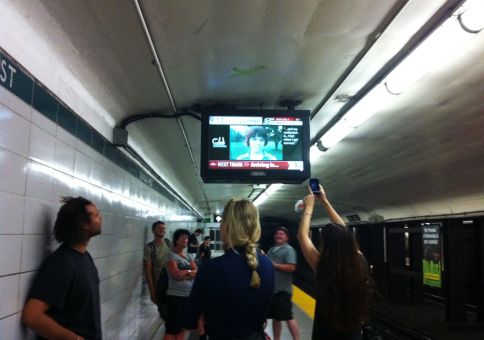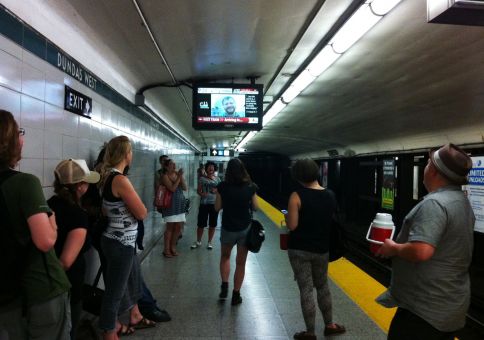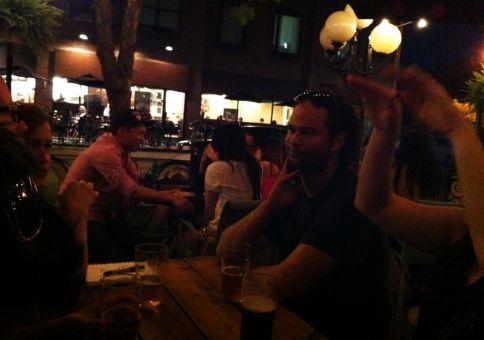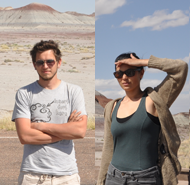175) Create a mass public art work 10 Jul 2012
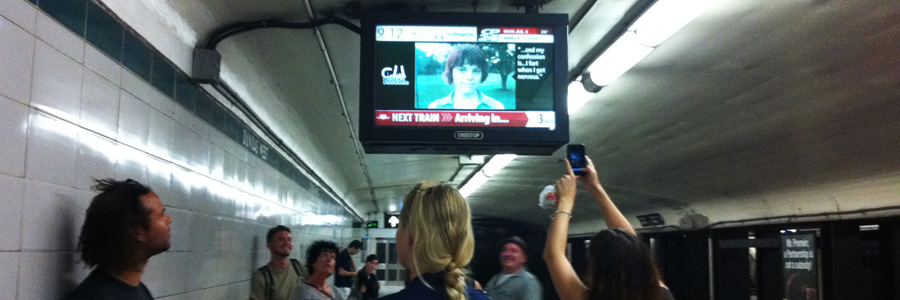
Back in October of 2011, John and I presented at an art conference at the Art Gallery of Windsor on the topic of community and collaboration. We spoke about our work with Labspace Studio, our experiential projects, exhibitions, and more specifically, our approach to art making & art curation (for us, these two are often intimately entwined).
The next day we received an email from Sharon Switzer, Curator & Programmer for Art 4 Commuters, an organization that programs video-based projects over the hundreds of digital monitors in Toronto’s subway system. We hadn’t met Sharon before, but we were familiar with her programming. We knew that she often worked with larger, more established organizations like the Contact Festival and TIFF, so we were surprised (and flattered) when she asked us to meet and discuss a potential art commission.
After that first initial meeting with Sharon, we were tasked to come up with an idea for her 2012 programming. It was a complete carte blanche (the best thing you can ask for as an artist and curator.) John and I reflected on the project for a good month. Our greatest concern was how to fully utilize those video monitors to provoke maximum engagement and conversation. We threw lots of ideas out there, threw lots in the trash, then pulled some back and re-worked them, until we came up with an idea (an experiment) that scared the shit out of us, so much so that it was unanimous…..
The concept was pretty simple: build a confession booth with a video camera, take it to different street corners, in different cities, and solicit on-camera confessions from complete strangers, confessions they’d be willing to let us broadcast to the millions of people riding through Toronto’s subway system. Simple right?
I am still dumfounded by how we did it all. Producing it has been emotional (to say the least), messy, frantic at times, but ultimately rewarding, and incredibly surprising. People amaze me. The idea that two strangers like John and I can convince other strangers (over 100 of them) to give-up something personal about themselves, something intimate, something real, for the sake of art, is a pretty wild thing. Maybe if we had never called it “art” we would have never received the confessions we did? I’ve often wondered about that throughout this process; if calling something “art” somehow makes a project more purposeful or tangible or credible?
The media has asked us this question a few times: “So guys, um, what makes this project art?” I can tell when they ask it that they assume they’re asking something offensive, but I think it’s a valid question. It’s a good question. Personally, I think it’s a huge compliment that the Toronto Star and the Globe & Mail reviewed Confessions Underground in their Life section, as opposed to their Art section. People are genuinely talking about this project, not just art snobs or art-minded people, but inane morning show hosts, reporters on the 6pm news, families over the dinner table. People are genuinely debating its merits, which I think is an indicator that we’ve done something successful. I’d like to think that we’re prompting people to think about their own boundaries, about public space, about the purpose of art in general. Ultimately, our objective is not to create “Art” with a capital “A” but to create work that affects people, connects people, embraces disciplines and philosophies, communicates something meaningful from one human being to the next, and blurs the boundaries between art and life in intricate and elusive ways.
Is Confessions Underground art? Honestly, does it matter? Will it make you feel better if I tell you it is? Would the project be any less significant if I said it wasn’t? I think these are more compelling questions.
For complete details on Confessions Underground (it’s still running in subways till July 15th!) visit our project page.
Also, visit our Press page. Somehow we managed to garner media attention from every major news source in the country.

